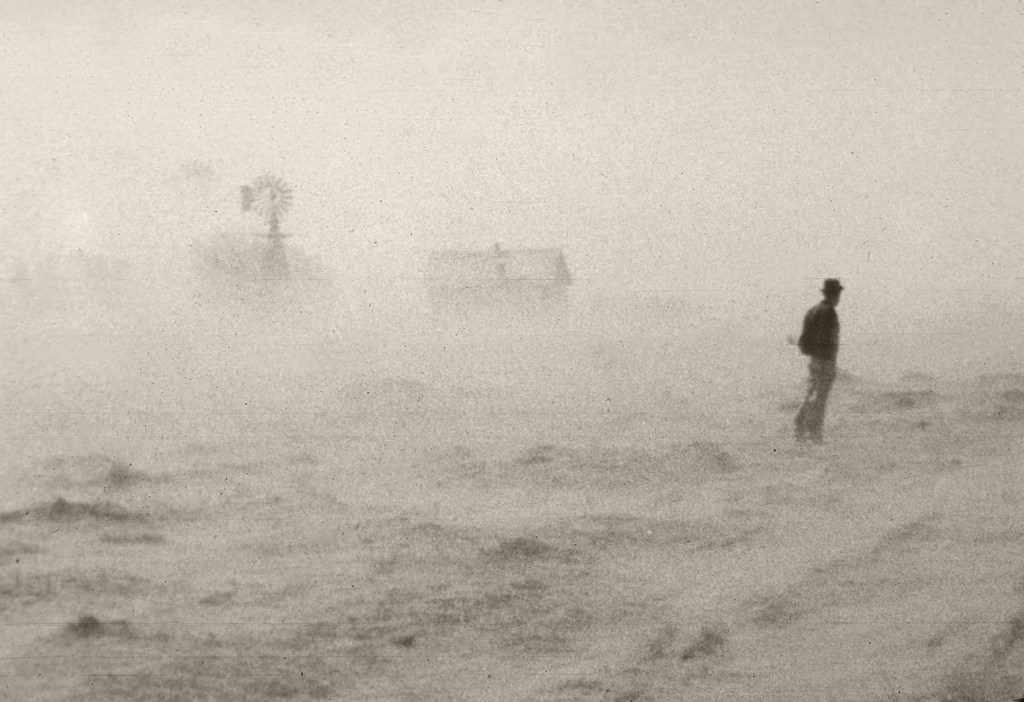Jerry’s trailer sat alone in the high desert, tethered on a half-acre plot ringed by a pig-wire fence. Native plants pushed against the fence like an inland sea. Bitterbrush, rabbitbrush, and sagebrush had grown like coral against a ceaseless tide of wind and sun, slowly rising up as a collective able to withstand the blasts of searing summer heat and crushing winter cold. The shrubs crept skyward over millennia, eventually reaching one, two or even three feet into the air. From a distance, they formed a gently rolling sea of aqua-colored scrub. Rabbits, coyotes, badgers, groundhogs, and antelope managed to survive the heat, cold and unending gales by clinging to the scrub. Jerry’s plot was a stubborn settlement against this natural world and any lives he brought to it had to swim upstream to survive.
The metal siding on his A-frame chicken coop rattled like a spastic, meth-soaked, cymbal-monkey. Repaired repeatedly as the wind peeled it free from the screws and nails holding the thin skin to the beams of the chickens’ meager shelter. Feathers bleached by the sun, wings clipped by the constant flow of sandy air against brittle feathers, eyes always squinting like the slits of Eskimo sunshades.
Trees and bushes around the plot were stunted. They held close the ground, knowing that to extend a leaf or limb meant losing it to the unceasing current. The windward side of every plant was amputated, as if pushed into a shredder and then saved at the last moment before the trunk was consumed. These squat, one-sided plants dotted the farm like some subterranean greenery, peeking up from underground and forever scarred for their curiosity.
Jerry spent his evenings in the trailer, listening to the radio as he smoked himself to sleep. During the day he collected meat for his jerky stand or sat in his lopsided shack along the highway selling dried goods to passersby. He went out early each morning to collect animals struck by cars during the night—the cool desert air keeping them well preserved. Jerky could be made from almost any animal, except skunks, foxes, and groundhogs—all with odors and tastes too strong to hide. Deer and antelope were rare but welcome windfalls.
Jerry’s pickup crept along the highway shoulder, paint dull and the Nissan logo now only a faded outline. Fur on carcasses fluttered in blasts of sand and dust, the animals laying at queer angles along the roadside. He put a cab over the bed years ago after someone noticed the collection of broken animals and questioned his motives. He carried butchering tools to lop off any tire-worn legs or to reduce the larger animals into manageable portions. Gusts of wind rocked the pickup as if jostled by some invisible giant.
Jerry was easy to recognize along the highway with his distinctive hunched gait, a protective posture against the scouring torrent that surrounded him. He sat with a hunch, and slept with a hunch. His posture not only protected him but also the ember of his ever-present cigarette. He was a master at lighting a cigarette in his cupped hands lest the flame be snatched away by the wind. Jerry only stopped smoking when he slept. A permanent brown smudge stained his first two fingers, his remaining front teeth matched the hue of a dirty teacup. Like many of the people he knew, most of Jerry’s teeth were gone—he removed the worst of them himself and those remaining shrank into sour raisins, loosely nested inside his swollen gums.
At the Gas-R-Up, a gaunt woman with raccoon makeup bummed a smoke from Jerry as he fueled his truck. She noticed the jumble of animal parts in the back of his pickup as he cradled her hand in his, guarding the lighter’s flame.
“What you doing with those?”
“Jerky. I run the stand at the edge of town. For tourists and hunters and such.”
“Any money innit?”
“It’s all profit, except for gas and the dry rub powder I use to flavor the meat.”
“How you like owning your own business?”
“Better than having some asshole boss. Which is every boss I ever had. What’s your name?”
“Annette. What’s yours?”
“Jerry.”
Their courtship complete, Annette moved into Jerry’s Trailer. She helped butcher and prep the animals, then hung strips of meat on the clothesline to cure. She watched TV when she could divine a signal from the unceasing gale, the picture little more than snowy shadows. When the TV didn’t work, she smoked and stared out at the desert, the wind constantly rocking the trailer like a ship at sea surrounded by a shuddering ocean of brush. She imagined herself at the bottom of it, swimming out to check on the chickens huddled together inside a doomed diving bell.
As weeks went by, the wind developed a voice. Annette was sure she imagined it. Or did she? Either way, one day while Jerry scavenged for meat, she walked to the main road and thumbed a ride on the first truck that passed. Jerry waited for her to return, and as he did, the wind spoke to him as well.
Years later, a lost UPS driver found himself down a dirt road that ended with the wooden skeleton of a trailer, its aluminum skin peeled away by the wind. The remains of a chicken coop lay in a sandy pyramid against a pig-wire fence and the body of a dried-up man hung on the clothesline, slowly turning in the wind. His skin bronzed and preserved as well as any pharaoh.
